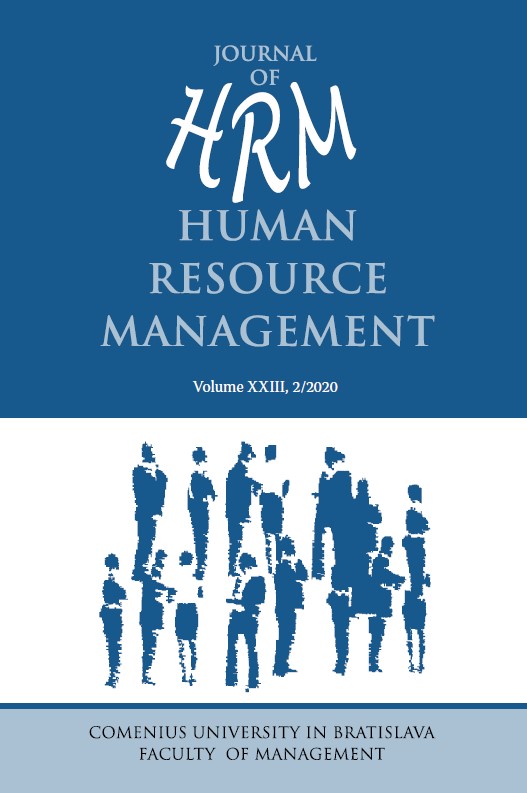Leader-follower moral (dis)similarity: A construct derived from ethics position theory designed for organizational ethics research
Leader-follower moral (dis)similarity: A construct derived from ethics position theory designed for organizational ethics research
Author(s): Marian StančíkSubject(s): Ethics / Practical Philosophy, Social psychology and group interaction, Personality Psychology, Organizational Psychology, Behaviorism, Management and complex organizations
Published by: Fakulta managementu Univerzity Komenského v Bratislave
Keywords: leader – follower (dis)similarity; relativism; idealism; moral ideology; dyadic morality;
Summary/Abstract: Purpose – Ethics Position Theory lacks a model of a perceiver and a target person moral (dis)similarity in general. Aim(s) – This paper presents a construct of Leader-Follower moral (dis)similarity derived from their individual moral ideologies designed to study ethical consequences at workplace. Design/methodology/approach – Based on similarity research papers reviewed at first, a logical assumption “the more similar moral ideology the target and the perceiver person hold; the less reasons for target to act towards the perceiver against own moral standards, and at the same time, the less bias for the perceiver to misjudge the act of the target towards him/her, and vice versa” was proposed. With regards to graphical analyses of possible assessment outcomes, three internal factors – Gap, Direction and Placement – were identified, and their methodological function in terms of ethical consequences at workplace were described. Findings – Parsimonious assumption proved to be a warrant strong enough to study morally similar partners. However, in case of dissimilar partners, possible latency, mediation and moderation effects among internal factors leave open ends for further research. Limitations – Lack of theory and the nature of Ethical Positions Questionnaire scales – relativism and idealism – to assess partners’ moral ideologies are concerns for empirical data analysis and result argumentation. Practical implications – Moral ideologies of leaders and followers, as individuals, might differ and this matter of fact yields at workplace as a mutual harmony or a moral conflict of ethical-philosophical reasons. Originality/value – This paper extends Ethics Position Theory into its uncharted area and provides methodological insight to study moral decision-making phenomena related to leadership and followership from a viewpoint new to organizational ethics research.
Journal: Journal of Human Resource Management
- Issue Year: 23/2020
- Issue No: 2
- Page Range: 28-39
- Page Count: 12
- Language: English

